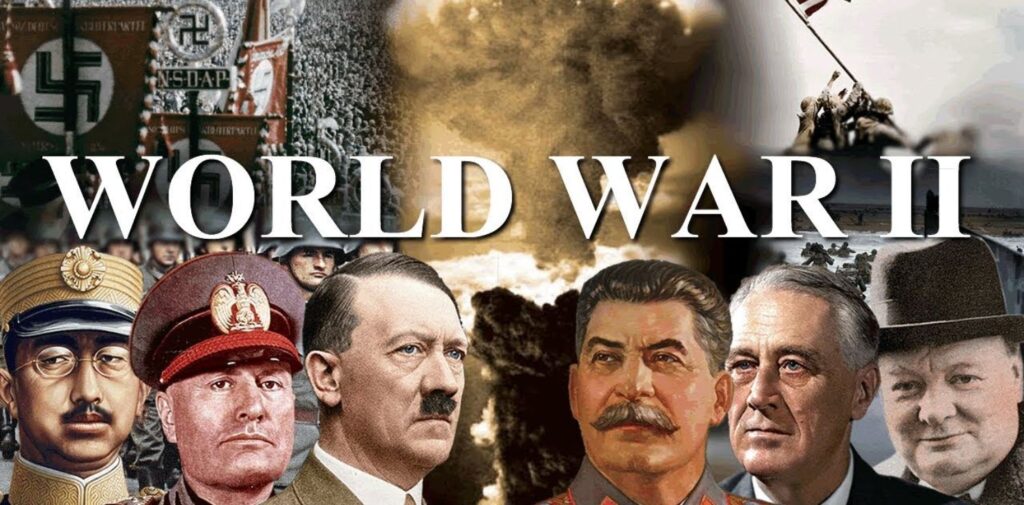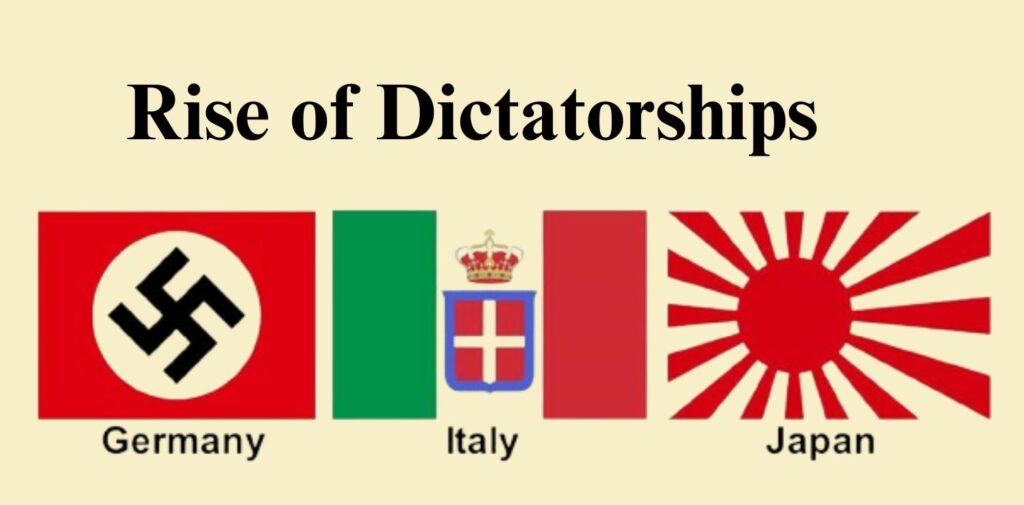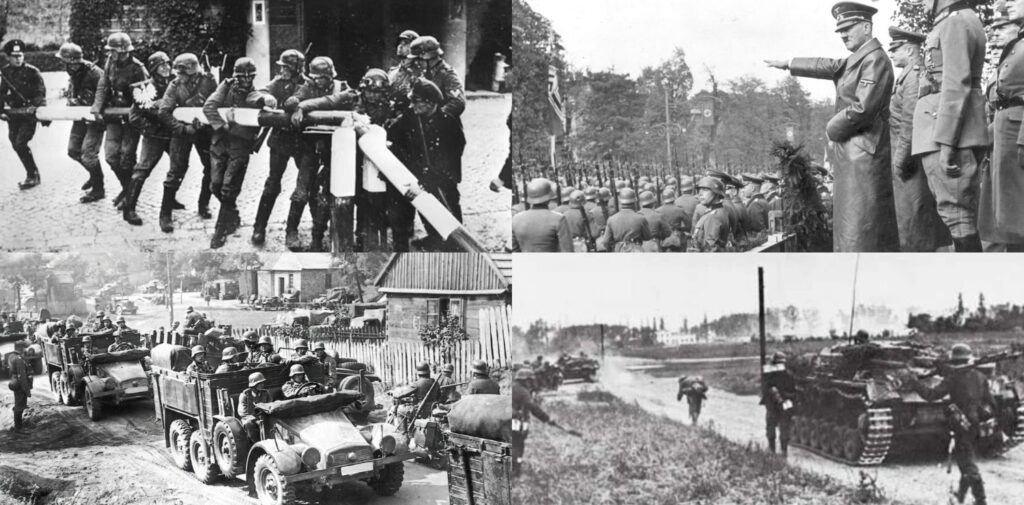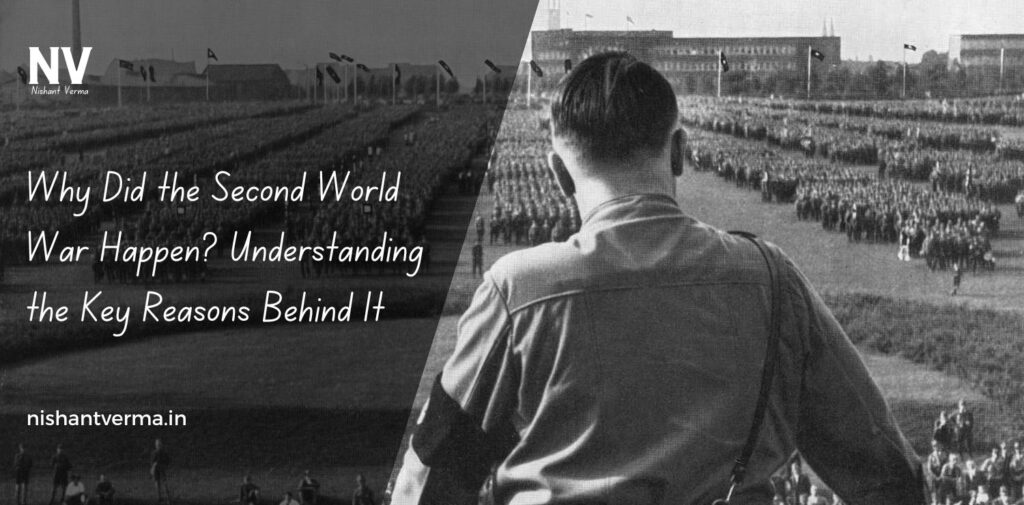The Second World War, which lasted from 1939 to 1945, is one of the deadliest conflicts in human history, involving countries from all around the globe. Over 70 million people died, and entire cities were destroyed. But how did this catastrophic event begin? Understanding the reasons behind the Second World War helps us learn valuable lessons and understand the complexity of international relations, politics, and humanity’s darker side. Let’s explore the main causes behind this devastating war in a simple, easy-to-understand way.
The Aftermath of World War I: Second World War
The roots of World War II can be traced back to the consequences of the First World War (1914-1918). After the end of World War I, the Treaty of Versailles was signed in 1919. This treaty officially ended the war, but it also placed harsh penalties on Germany. These penalties included heavy reparations (payments), loss of territory, and severe restrictions on Germany’s military.
This led to widespread resentment and anger in Germany. The country’s economy collapsed, leading to hyperinflation and massive unemployment. People felt humiliated and blamed the Treaty of Versailles for their suffering. This anger and instability created a fertile ground for radical leaders like Adolf Hitler to rise to power by promising to restore Germany’s pride and reverse the treaty’s effects.

The Rise of Dictatorships
One of the key reasons for World War II was the rise of totalitarian regimes, particularly in Germany, Italy, and Japan. These countries were led by dictators who believed in expanding their power and territory.
- Germany: Adolf Hitler and his Nazi Party came to power in 1933. Hitler’s vision was to restore Germany’s strength and build a “Third Reich” (a powerful German empire) that would dominate Europe. He blamed Jews, communists, and other minorities for Germany’s problems and aimed to expand Germany’s borders through aggressive military actions.
- Italy: Benito Mussolini, who became the dictator of Italy in 1925, also wanted to build an empire. He sought to revive the glory of ancient Rome by conquering lands in Africa and Europe.
- Japan: In Japan, military leaders held significant influence over the government. They aimed to expand Japan’s territory across Asia and the Pacific, particularly into China and Southeast Asia, to gain access to resources like oil and rubber.
These dictatorships shared an aggressive, expansionist ideology that viewed war as a means to achieve their goals.

Economic Instability and the Great Depression
The world was also facing severe economic problems during the 1920s and 1930s. The Great Depression of 1929 had a devastating effect on the global economy. Millions of people lost their jobs, and countries struggled with poverty and political instability.
In times of economic crisis, people often look for strong leaders who promise quick solutions. This is exactly what happened in Germany, Italy, and Japan. Economic hardship made people desperate and more willing to support extreme ideas. The rise of militaristic and authoritarian regimes became a direct result of this instability.
Failure of the League of Nations
After World War I, the League of Nations was created to prevent future conflicts. The League was meant to be a place where countries could come together, negotiate, and resolve their problems peacefully. However, the League of Nations was weak and lacked the authority to enforce its decisions.
- Weakness of the League: The League of Nations had no military force of its own and relied on its member countries to enforce peace. However, many powerful nations either did not join (like the United States) or left the League (like Japan). When aggressive countries like Germany and Italy began invading other nations, the League was unable to stop them.
- Appeasement: Many countries, especially Britain and France, followed a policy of appeasement, which means they tried to avoid conflict by making concessions to aggressive nations. For example, when Hitler invaded parts of Europe, such as Austria and Czechoslovakia, Britain and France did not take strong action, hoping that giving in to his demands would prevent a larger war. However, this only encouraged Hitler to become more aggressive.
Expansionism and Militarism
Another reason for the outbreak of World War II was the desire for expansion and empire-building by countries like Germany, Italy, and Japan.
- Germany’s Expansion: Hitler wanted to expand Germany’s territory to give the German people “Lebensraum” (living space). This meant taking over neighboring countries, starting with Austria and Czechoslovakia, and eventually attacking Poland.
- Italy’s Conquests: Mussolini wanted to expand Italy’s control in Africa. In 1935, Italy invaded Ethiopia, hoping to build a new Roman Empire.
- Japan’s Imperial Ambitions: Japan sought to dominate Asia and the Pacific. It invaded Manchuria in 1931 and launched a full-scale war against China in 1937. Japan’s aggressive expansion created tensions with other world powers, especially the United States.
The Trigger: Invasion of Poland
The direct cause of World War II was Germany’s invasion of Poland on September 1, 1939. After years of aggressive actions and expansion, this invasion was the final straw. Britain and France had promised to defend Poland if Germany attacked. Two days later, on September 3, 1939, they declared war on Germany, marking the official beginning of World War II.
However, it wasn’t just Germany involved. Shortly after the war began, the Soviet Union, under Joseph Stalin, also invaded Poland from the east. Stalin and Hitler had secretly agreed to divide Poland between themselves, as part of a non-aggression pact signed in August 1939 (the Molotov-Ribbentrop Pact).

Role of Alliances
World War II quickly escalated into a global conflict due to the complex system of alliances between countries.
- The Axis Powers: Germany, Italy, and Japan formed the Axis Powers, agreeing to support each other in their military campaigns and efforts to dominate Europe, Africa, and Asia.
- The Allies: In response, countries like Britain, France, the Soviet Union (after Hitler broke the non-aggression pact), and later the United States and China, formed the Allies to fight against the Axis Powers.
Failure of Diplomacy
In the years leading up to World War II, there were many attempts to avoid war through diplomatic means. International conferences and agreements were made, but they were often ignored or violated. Hitler and other dictators repeatedly broke their promises, and their aggressive actions were not stopped in time.
By 1939, it became clear that diplomacy had failed, and the only way to stop the expansionist powers was through military force.
Conclusion: A Perfect Storm of Causes
The Second World War was caused by a combination of factors, including the harsh consequences of World War I, the rise of totalitarian regimes, economic instability, and the failure of international institutions like the League of Nations. Aggressive expansion by countries like Germany, Italy, and Japan, combined with the failure of diplomacy and the trigger event of Poland’s invasion, made the conflict unavoidable.
Understanding the causes of World War II is crucial for recognizing the importance of diplomacy, the dangers of unchecked power, and the value of maintaining international peace. By reflecting on the past, we can work towards a more peaceful future and ensure that such a devastating war never happens again.




